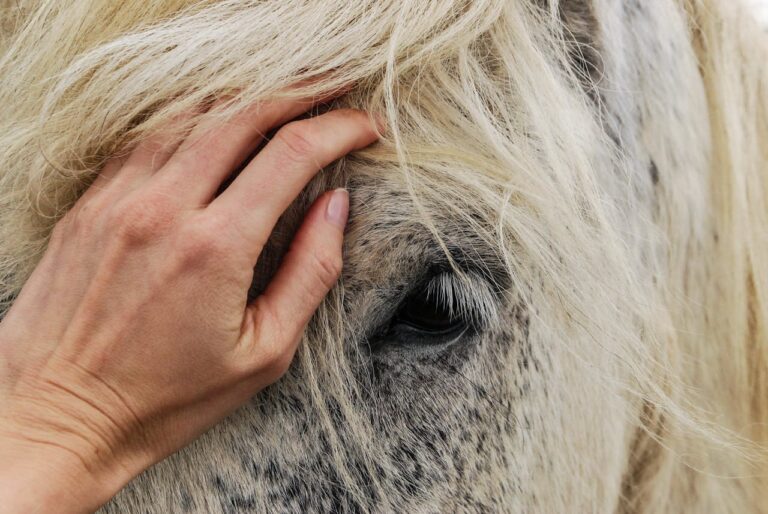Horses are intelligent animals that have certain feelings, and preferences, and can develop a certain connection with humans. But did you know that they also react to music?
Yes, that’s right. Music can have a relaxing effect on horses.
This shouldn’t be that surprising. Certain tunes have an effect not just on horses, but on many different animals. For example, if horses hear a loud bang they will be scared, so why wouldn’t they be relaxed after listening to classical music for example?
Over the years, animal scientists have researched the effects of music on horses and they’ve found something truly spectacular. Music can affect the horse’s mood and behavior.
As a handicapper, I know what you are thinking. Ah, there goes another thing that I need to analyze before a race. Finding out the type of music that racehorses listen to before a race might be hard if you don’t have some insights.
Still, there are many things apart from music that can affect the horse’s performance, whether it’s one of the Preakness contenders or a companion horse.
Back to music. In today’s article, we’ve decided to dive deeper into how music affects our equine friends.
Understanding Equine Responses to Music
Over the years, research has proven that there is an intricate relationship between equine behavior and music. In other words, certain tunes relax horses while others make them feel nervous and agitated.
Same as humans! Different genres impact humans in different ways. If we take a look at the study published by the Journal of Veterinary Behavior, we can find out that classical music has the deepest impact on horses, especially when it comes to relaxation.
The soothing melodies and harmonious composition have a relaxing effect on horses and are proven to be big stress relievers in a stable environment.
So, installing some speakers in a stable and putting on some soothing tunes isn’t weird at all. This can have a big impact on their behavior and recovery time.
Which Music Genre Horses Prefer
The type of music is also very important for horses. Horses react to the speed and tempo of the music, and their behavior can change drastically when introduced to different genres. When we are talking about relaxation, you’d want to pick slow and steady beats, something that imitates the natural cadence of a horse’s movements or nature sounds.
Additionally, you can introduce classical music. This music genre has also been proven to have positive effects on horses. It relaxes them and makes them feel safe.
On the other hand, it is worth mentioning that horses are quite anxious animals and can easily be agitated by fast-paced or unpredictable rhythms.
This means that hip-hop, rock, or heavy metal are out of the question. Even when preparing for a race, you wouldn’t want to make your horse even more anxious than it already is, so go for a slow beat and classical sounds that relax horses.
Research on the Behavior and Music of Horses
There is strong evidence from several scientific research about the effect of music on horses. A study carried out at a top-tier equestrian facility revealed that horses trained in classical music showed better attention and less stress indicators than horses trained in quiet or with loud, distracting stimuli.
Type of Music Horses Prefer
As we mentioned before, horses are quite sensitive animals and your job is to make them feel as safe and as relaxed as possible. Over the years, there have been many researches about the music genre that horses prefer and all of them have the same outcome.
Horses just don’t like fast and unexpected beats. Therefore, there is only one music genre that horses prefer, and that is classical music.
Classical music with its calming rhythms and melodious tunes creates a harmonic space where horses can relax. On top of that classical music also corresponds with the natural motions and rhythms of horse activities, making it the perfect genre for your stable.
Horses also like natural noises that evoke a sense of connectedness to their surroundings, such as running water, birds tweeting, and a light breeze rustling through trees. These genre preferences demonstrate the therapeutic value of music catered to horses’ tastes in fostering well-being and emotional balance, as well as their natural sensitivity to auditory inputs.
Music Therapy in Equine Care Settings
Music therapy has emerged as a valuable component of equine care programs, offering holistic benefits for horses’ physical and emotional well-being. Therapeutic sessions incorporating calming music have been shown to reduce cortisol levels, enhance mood, and facilitate relaxation responses in horses recovering from injuries or facing behavioral challenges.
Practical Applications and Recommendations
In practical terms, incorporating music effectively into equine environments involves careful selection and implementation. Key considerations include:
- Genre Selection: Opt for classical, ambient, or nature-inspired music known for its calming effects.
- Volume and Atmosphere: Maintain a peaceful atmosphere by playing music at a moderate volume, avoiding sudden or loud changes that may startle horses.
- Routine Integration: Integrate music into daily routines such as grooming sessions, turnout periods, and relaxation times to establish a soothing ambiance.
- Observation and Adaptation: Monitor horses’ responses to different musical stimuli and adjust accordingly to optimize relaxation and well-being.
Harnessing the Therapeutic Power of Music
The therapeutic power of music extends beyond mere auditory stimulation; it fosters a sense of tranquility and harmony that resonates deeply with horses’ sensitive nature. As caretakers and enthusiasts, embracing the role of music in equine environments enriches the lives of these majestic creatures and promotes a harmonious bond between humans and horses.






